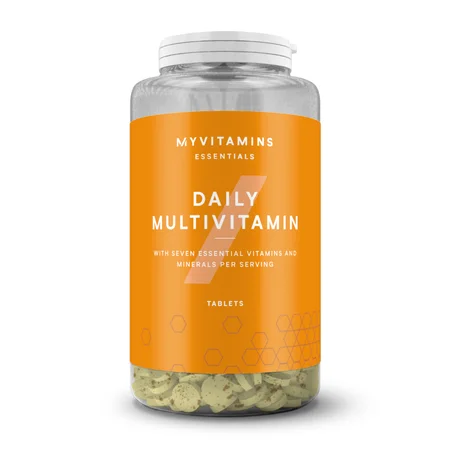3 Proven Benefits of Vitamin A | What It can do for You

“Eat your carrots, they’ll help you see in the dark!” – we’ve all been told this as a kid. Was it just an excuse to get us to eat more vegetables? Or could there be some truth behind it? We’ll soon find out, as we explore vitamin A.
In this article, you’ll find:

What is Vitamin A?
Vitamin A is an essential micronutrient which plays key roles in vision, immunity, cell maintenance, and other key bodily processes.1 Vitamin A can be obtained through the diet from animal sources (as retinol), or plant sources (as carotenoid). The majority of vitamin A we consume comes in the form of retinol.2 Once in our body, the majority of vitamin A circulates around and is stored in the liver.3
Health benefits of Vitamin A
1. Vitamin A is key for eyesight
Let’s get back to our parents telling us to eat carrots. Aside from carrots being a delicious and versatile vegetable, they are also rich in vitamin A — believe it or not, in the carotenoid form.
The biological name of vitamin A — retinol — is aptly named because it contributes to the formation of retinal pigments in the eye, which are essential for eyesight.4 Vitamin A also helps maintain the cells that line the conjunctiva and cornea – together, these make up the thin, clear membrane that cover the eye surface.5
Summary
The old wives’ tale about carrots may not strictly be true, however, vitamin A is essential for overall eye health. So, even as adults, we should be eating our carrots!
2. Vitamin A can boost our immune system
Vitamin A possesses antioxidant properties, much like vitamins C and E.6 As such, vitamin A plays a role in immunity by reducing the damage caused by free-radicals, like reactive oxygen and nitrogen species.7
Vitamin A primarily boosts immunity by maintaining the health of epithelial cells.8 Epithelial cells line most surfaces in the body and function as the “front line” of defence against invading pathogens (harmful bacteria, viruses, and microorganisms).9 Vitamin A also helps boost the immune function of the sticky mucus layer that lines the respiratory tract and intestine, by stimulating the secretion of mucin. This helps remove any unwanted particles or pathogens that you’ve inhaled.9
Research dating back to 1925 first identified that a lack of dietary vitamin A changes the structure of our surface cells (known as epithelia) and weakens the “front line” defence barrier.10
Summary
Vitamin A can help boost your immune system and get your body’s defence barrier ready for a fight against bacteria. Also playing a role in gut health, ensuring you get enough vitamin A is important all year round.
3. Vitamin A could reduce memory loss
Research indicates that vitamin A has a place in brain health — right from the embryonic stage of life through to adulthood and older years. The way this works isn’t fully understood yet, but let’s take a look at what we know so far…
Vitamin A is heavily involved in neuroplasticity — this is the ability of the brain to change continuously throughout the lifetime, for example, by deleting neural pathways that aren’t useful anymore. Specifically, vitamin A contributes to the neuroplasticity related to memory performance.12
As you age, your brain’s ability to mould and change when it needs to declines – this can lead to cognitive impairments, such as memory loss. Scientists think this is due to reduced activity of the brain signalling pathways involving retinoid. Luckily for us, vitamin A supplementation can reverse this age-related cognitive decline. When vitamin A gets into the brain and binds to its specific receptor sites, it triggers the production of more genes related to neuroplasticity.13 This gives your brain the tools to chop and change its structure and functions, much like it could a few years ago.
One large-scale study showed that the amount of vitamin A you consume and store is positively correlated with better memory performance in older adults (aged 65-94 years).14 This has led to vitamin A being investigated as a potential preventor and ameliorator of cognitive diseases.15
Summary
In a nut shell, vitamin A allows the brain to change and rewire as and when it needs to, allowing us to hang onto important information and ditch what we don’t need. Vitamin A could also help prevent or reduce cognitive impairment, which typically happens as we reach our later years.
How much vitamin A should I take daily?
The reference nutrient intake for vitamin A varies throughout your lifetime. Adults have a daily requirement of 625 and 500 µg a day for males and females, respectively.
How much vitamin A is too much?
Don’t go crazy on vitamin A — more doesn’t necessarily mean better and there is a tolerable upper intake level of 3000 µg per day, due to the toxic side-effects.16
Side-effects of taking too much vitamin A
Since vitamin A is stored in the liver, toxicity can occur through either an acute high dose, or chronic excessive doses. The most commonly reported side-effect is skin irritation and dryness – with other minor effects like headache and nausea being reported less frequently.
Make sure you’re taking the correct dose of vitamin A and consult your GP if adverse effects occur.
Sources of vitamin A
Many Western food products are now fortified with vitamin A to help the population reach their dietary requirements. These include breakfast cereals, grains, milk, oils, and condiments. However, these are some sources that are naturally high in vitamin A:
| Source | Retinol content (µg per 100g) | Daily Value % |
| Beef liver | 9,442 | 1,049% |
| Sweet potato | 1,043 | 116% |
| Goose liver pâté | 1,001 | 111% |
| Carrots (cooked) | 852 | 95% |
| Tuna | 757 | 84% |
| Spinach (raw) | 469 | 52% |
| Goat cheese | 407 | 45% |
| Cantaloupe melon | 169 | 19% |
| Salmon | 149 | 17% |
| Eggs | 149 | 17% |
| Apricot | 96 | 11% |
Take home message
Vitamin A is clearly an essential nutrient for overall health throughout your life. Without it, we may struggle to see in the dark, suffer one too many colds, and be even more forgetful. Just be careful of how much you consume — especially through supplements and rich sources, such as liver — to avoid vitamin A toxicity. So, what’s the key message here? Basically, eat your carrots!





